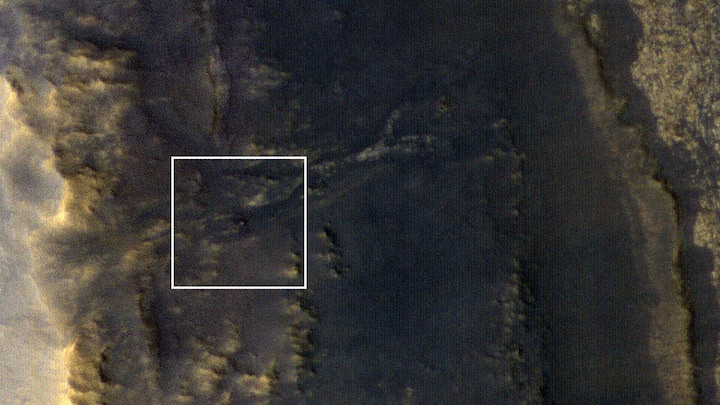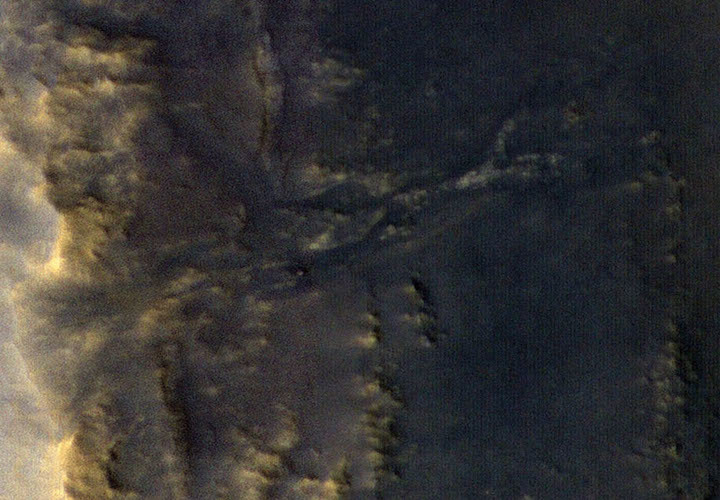26.09.2018

NASA's Opportunity rover appears as a blip in the center of this square. This image taken by HiRISE, a high-resolution camera onboard NASA's Mars Reconnaissance Orbiter, shows the dust storm over Perseverance Valley has substantially cleared. Image Credit: NASA/JPL-Caltech/Univ. of Arizona

-
NASA still hasn't heard from the Opportunity rover, but at least we can see it again.
A new image produced by HiRISE, a high-resolution camera aboard NASA's Mars Reconnaissance Orbiter (MRO), shows a small object on the slopes of the Red Planet's Perseverance Valley. That object is Opportunity, which was descending into the Martian valley when a dust storm swept over the region a little more than 100 days ago.
The storm was one of several that stirred up enough dust to enshroud most of the Red Planet and block sunlight from reaching the surface. The lack of sunlight caused the solar-powered Opportunity to go into hibernation.
The rover's team at NASA's Jet Propulsion Laboratory in Pasadena, California, hasn't heard from it since. On Sept. 11, JPL began increasing the frequency of commands it beams to the 14-year-old rover.
The tau -- a measurement of how much sunlight reaches the surface -- over Opportunity was estimated to be a little higher than 10 during some points during the dust storm. The tau has steadily fallen in the last several months. On Thursday, Sept. 20, when this image was taken, tau was estimated to be about 1.3 by MRO's Mars Color Imager camera.
This image was produced from about 166 miles (267 kilometers) above the Martian surface. The white box marks a 154-foot-wide (47-meter-wide) area centered on the rover.
The University of Arizona in Tucson operates HiRISE, which was built by Ball Aerospace & Technologies Corp., in Boulder, Colorado. NASA's Jet Propulsion Laboratory, a division of Caltech in Pasadena, California, manages the Mars Reconnaissance Orbiter Project for NASA's Science Mission Directorate in Washington.
Quelle: NASA
